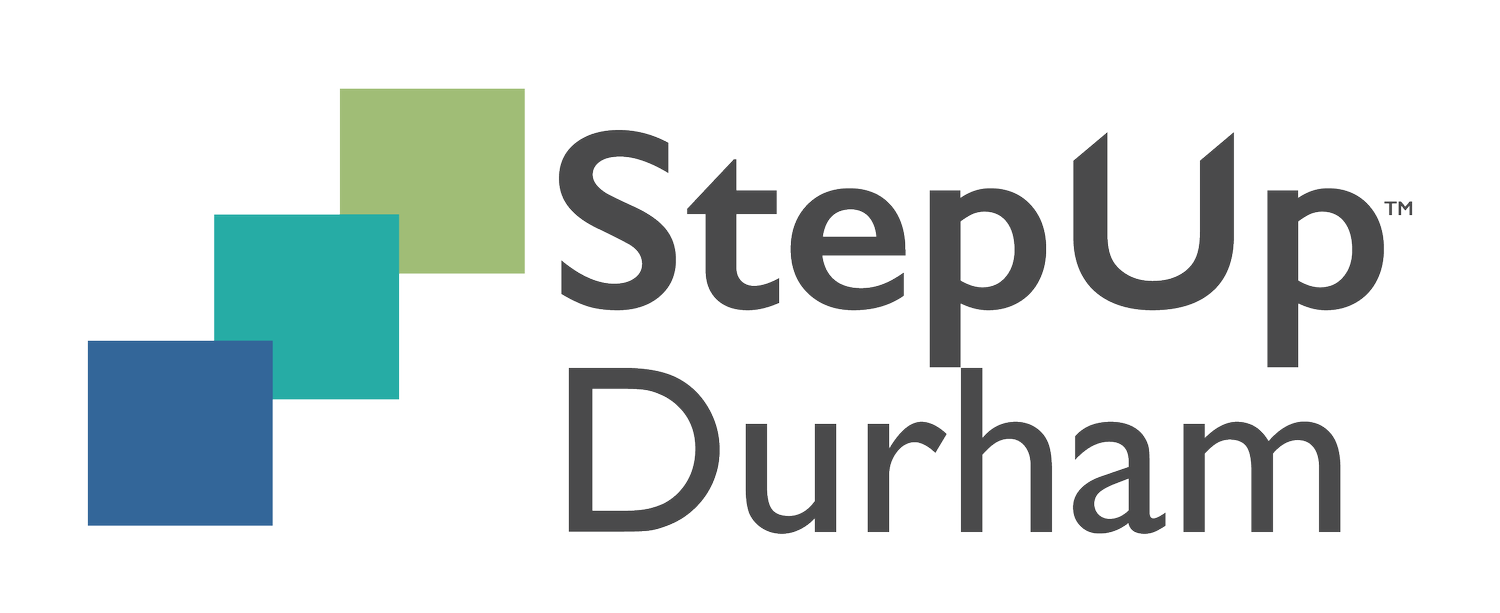Successful Guaranteed Basic Income Program
INDY WEEKLY by Thomasi McDonald 03/15/2023
Torry Cooper Credit: Brett Villena
Last February 2, the day before his 35th birthday, Torry Cooper had just gotten out of jail. He was on the verge of a breakup with a former girlfriend, didn’t have a job, and was at a loss about his next move. He ended up sleeping on his sister’s couch before moving to the Durham Rescue Mission. He says he was riding a city bus that day when information about Durham’s fledgling guaranteed income initiative “popped up on Google.”
“I called on my birthday,” Cooper says. “I was accepted the same day. On my birthday. That’s crazy, right? At that point, I was out of work and housing was tenuous.”
Cooper received a second gift on his birthday. He was accepted into a transitional home in East Durham, where people recently released from prison are able “to get their life together, basically,” in Cooper’s words.
Cooper now works at Panera Bread and an Amazon warehouse. He used the money from the guaranteed income program to buy a car in order to drive himself to and from work.
Following the successes and the differences a year of relative financial stability have made in the lives of the 109 residents who participated in the program, which ended last month, Durham mayor pro tem Mark-Anthony Middleton wants to keep the guaranteed income going.
Middleton has proposed allocating $1 million in the city’s budget to continue a pilot that provides a guaranteed income of about $6,600 annually for some of the city’s most economically vulnerable residents: the formerly incarcerated.
“I recommended that our initial focus be on the formerly justice-involved individuals because of the pre-existing body of work we had already done in Durham, and because so many of the challenges of upward mobility individuals face are compounded with that population,” Middleton stated in an email to the INDY.
The mayor pro tem added that he’s gratified by his fellow council members’ “openness to my request for a $1 million placeholder” to continue the program.
“It’s not subsidizing mansions or exotic cars, but rather, I have found that people [who] aren’t engaged in the creative calculus on how to feed their families and pay their bills make better neighbors, “ Middleton wrote.
The city’s guaranteed income program was launched last year after Twitter’s former chief executive officer Jack Dorsey announced in late 2020 that he had donated $15 million to Mayors for a Guaranteed Income, composed of a group of about 30 cities. The funds would provide each city with up to $500,000.
Former Durham mayor Steve Schewel, in early 2021, announced that Durham was one of the cities earmarked to receive the funding and asked Middleton to lead the project.
Middleton, in a February 2021 email to the INDY, said that he planned to continue an ongoing “engagement with corporate and philanthropic partners to supplement our expected $500,000 grant in the hope of conducting a pilot that will involve no less than 100 people,” with at least 55 residents who were formerly incarcerated.
The guaranteed income initiative is managed by Step-Up Durham, a downtown nonprofit that offers workforce development, employment training, job placement and retention, according to Syretta Hill, the agency’s executive director.
The supplemental funds can be used for educational expenses, food and groceries, transportation, housing, and utilities—and even travel and entertainment.
Middleton praised StepUp Durham’s work with, and city leaders’ commitment to, the program.
“Guaranteed income is a societal statement that by virtue of your humanity, citizenship, and residency there is a line beneath [which] we will not allow you to fall,” he wrote.
But there has been some pushback against the pilot program that started last March with the $500,000 that the city, as well as private donations, supplemented.
“There’s been a lot of backlash,” Shanti Callender, the guaranteed income program’s coordinator, tells the INDY. “Some people worried that [the participants] would fall back into substance abuse, or use the funds for bad instead of good, or go shopping instead of doing something positive.”
But those worries are misplaced.
“Everyone stayed true to the game,” Callender continues. “No one went back to jail, and there’s been no instance of anyone falling back into substance abuse.”
“The 109 individuals are all working,” says StepUp director Hill. “The funds are a supplement, not a handout. The data showed that women make a little over $8,000 a year, and men make $14,000. No one can live on that. Some people just want to see other people struggle.”
According to demographic data provided by StepUp Durham, the average age of the program participants is 41. About 73 percent of the participants are men, while women account for 26 percent. Just over 42 percent of the recipients have children in their homes; the average household size is three, and nearly 60 percent are single.
The overwhelming majority of the guaranteed income recipients are Black American, nearly 84 percent, while white residents account for just over 10 percent of the participants, and Hispanic residents just under 3 percent.
Tydricka Lewis, 33, also benefited from a financial hand up that enabled her to overcome the stultifying and pernicious effects of poverty. Like Cooper, she, too, used the funds to purchase a car to get her to and from work.
Credit: Brett Villena
A single mother of three children, Lewis told the INDY that she has relied on StepUp Durham’s job preparedness resources since 2019. Last year, she saw an advertisement about the guaranteed income initiative. She spoke with Callender, the program’s coordinator, and got more information.
Callender says part of her job is to listen to the participants to determine their needs and what support they need to get back on track: housing, food, day care, transportation, résumé help, and employment all fall under that umbrella.
Callender says setting up a financial account or using a computer are not routine skills for most participants, some of whom have been released from prison after serving lengthy sentences. “A lot had spent 20 years plus in prison,” she says. “So when they came home, everything was different.”
Callender points to a wide range of offenses that landed the participants in prison, including armed robbery, car theft, bank fraud, credit card fraud, and breaking and entering.“Sometimes, when you don’t have a job you do what you have to do to support your family,” she says. “That doesn’t justify the crime, but sometimes you have to do what you have to do.”
Lewis lives with her children in a one-bedroom apartment near Page Road that’s not on the public bus line. Lewis hit the ground running after she was released from prison. One big obstacle was reliable transportation, not only for getting to and from work but also to take her kids to school and day care.
She used the $600 a month from the guaranteed income program to purchase a 2020 Nissan Rogue and pay for auto insurance. “It’s been important, really important,” she says about the supplemental income. “I needed it, not just wanted it.”
Lewis participated in a work release program while serving more than six years behind bars. She worked at the KFC at the Phoenix Crossing shopping center on Fayetteville Street. She was released from prison on June 6, 2019, and found work on June 13 with the Habitat for Humanity store on U.S. 15-501.
“While I was in prison, I had a lot of support in the community,” says Lewis. She adds that community support in her transition back into society was “a great part of that process.”
Lewis continued working at KFC after she found work with Habitat for Humanity. Then, she found work as a peer support specialist with Southlight and traveled throughout the Triangle meeting clients who were struggling with substance abuse disorders and mental health issues. She also worked with Rebuild, a Durham nonprofit that she describes as “Black people–to–Black people therapy.”
Now Lewis’s sole job is with the Durham Community Safety Department’s Holistic Empathetic Assistance Response Team (HEART), one of three crisis response pilots the city launched in late June of last year. Lewis is part of a three-member crisis response team who are “first responders to non-violent behavioral health and quality of life calls for service,” according to the city’s website.
“We get referrals from the police,” Lewis says. “We have walkie-talkies. We show up to empower people. I’ve been there. I can definitely relate. It’s part of my lived experience.” Lewis says her team responds to wellness checks and trespassing calls and will normally follow up with residents to ask if they need further assistance.
“I’m loving it,” she says of her work. “I grew up in Durham. This is what Durham needed.” Cooper says he received his first $600 payment from the program on March 15 of last year. “It helped me buy food, make job interviews, go to doctor’s appointments, and pay my rent,” he says. “That money has helped me out so much.”
Cooper adds that the program has also assisted with money management through an online banking account with salary advances that has enabled him to build up his credit. He’s also taken advantage of financial advice with savings and investments offered by the online banking service, along with perks like 25 percent off the latest Nike sneakers.
“They start you off with a $25 advance and also report on your credit,” he says. “It’s basically like a secure credit card.”
Not having to wonder how to pay their rent or car balance has allowed Lewis and Cooper to look beyond their immediate needs. They both want to give back to the community.



